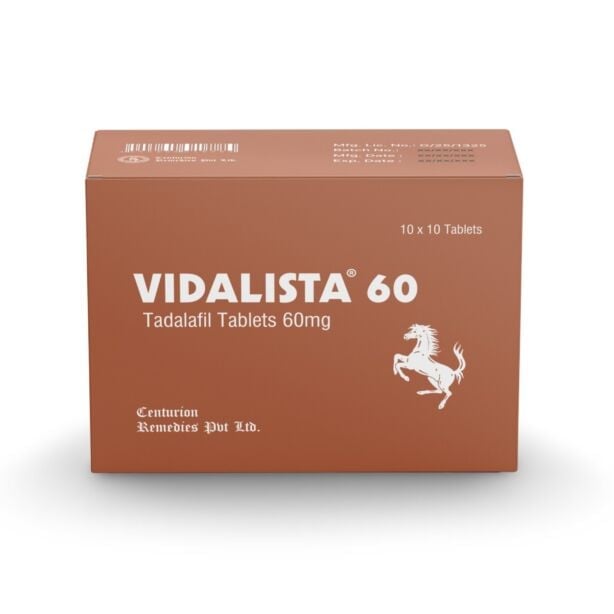If you’ve ever wondered, “Why can’t I get hard anymore?” you might be struggling with Erectile Dysfunction (ED). And you’re not alone. Many men experience erection issues at some point in their lives. Still, if it persists for longer, it can be frustrating and even a little scary.
The good news is that there are answers and possible solutions to reclaim your intimate life. Whether it’s a one-time issue or something that keeps happening, understanding the underlying causes is the first step toward regaining sexual intimacy.
This article will dive deep into the common causes, treatments, and preventive measures for Erectile Dysfunction so you can tackle the problem head-on and regain your confidence.
Why can’t I get hard anymore?
Experiencing difficulty in getting or maintaining an erection can be a troubling experience, especially if it starts happening more often. But it’s important to remember that this is a common issue that many men go through.
Several factors can contribute to this problem, but it doesn’t always mean you have a severe health condition. Sometimes, it could be something temporary that can be easily fixed.
However, if the problem keeps occurring, it might be a sign of Erectile Dysfunction (ED), a condition that can affect your sexual health and well-being if not addressed. Knowing the possible causes is crucial for finding the right solution.
Fortunately, proven treatments, such as Cenforce-200 and Fildena 100 mg, can help you achieve firm erections for an enhanced sexual experience. Furthermore, the prolonged efficacy of Vidalista 20 and Vidalista 80 allows you to attempt multiple sexual intercourse within that duration.
Reasons behind why men can’t get hard
Several factors can lead to a weak erection, that is, having difficulties in achieving a firm
erection. These include physical, hormonal, and psychological causes, medications, health conditions, and lifestyle factors.
Let’s explore each of these in more detail.
Physical causes
Physical causes are among the most common causes of ED. These typically involve issues that affect blood flow to the penis or damage the nerves responsible for erections due to some surgery. For instance, Prostate surgery can cause Erectile Dysfunction. Some of the most common physical causes include:
- Heart disease: Poor heart health can lead to restricted blood flow, making it difficult to achieve an erection
- High blood pressure: This condition can damage blood vessels, reducing the flow of blood to the penis. Therefore, your high blood pressure can also cause ED
- Obesity: Excessive weight can lead to reduced testosterone levels and poor circulation that contributes to erectile issues
Psychological causes
Your mental health plays a crucial role in your sexual function. Psychological factors that can cause ED include:
- Stress: High levels of stress can also cause ED. It interferes with your body’s ability to achieve an erection, thus contributing to erection problems
- Anxiety: Sexual Performance Anxiety or general Anxiety can lead to difficulties in getting or maintaining an erection
- Depression: Depression can lead to ED as it often reduces interest in sex and can make it hard to get an erection
- Relationship issues: Relationship problems with your partner can lead to reduced sexual desire and contribute to ED
Medications and health conditions
Underlying health conditions and certain medications can also cause ED. Medications for high blood pressure, Depression, Anxiety, and other health issues may have side effects that affect sexual function. Additionally, some underlying health conditions may also increase the risks of developing erection issues, such as:
- Diabetes: Diabetes can cause ED as it damages nerves and blood vessels
- Neurological disorders: Conditions like Parkinson’s disease and their medications can cause ED
Lifestyle factors

Your lifestyle choices have a significant impact on your sexual health. Factors that can contribute to ED include:
- Smoking: This habit damages blood vessels, reducing blood flow to the penis
- Excessive alcohol consumption: Alcohol can interfere with the nervous system and reduce your ability to get an erection
- Lack of exercise: A lack of exercise can decrease the blood circulation and contribute to ED
- Poor diet: A diet lacking essential nutrients can lead to obesity, Diabetes, and other conditions that contribute to ED
Hormonal causes
Hormonal imbalances can also play a vital role in the development of ED. Testosterone, the primary male sex hormone, is crucial for sexual function. Low levels of testosterone can lead to a reduced sex drive and difficulties in getting hard.
How can I get hard: ED treatments
If you’re struggling with ED, there are various treatment options for ED available, depending on the underlying cause.
Medical treatments
Doctors often prescribe medications like Sildenafil (Viagra), Tadalafil (Cialis), and Vardenafil (Levitra) to treat ED. These drugs work by increasing blood flow to the penis, helping you achieve and maintain an erection.
The generic options for ED pills, such as 100 mg of Sildenafil Citrate, Cenforce 150 pills, and Kamagra 100 mg Oral Jelly, are also effective in reducing erection difficulties and prolonging sexual intercourse.
However, it’s essential to consult a doctor before starting any ED medication to ensure its safety and a faster recovery.
Lifestyle changes
Making healthy lifestyle changes can significantly improve your sexual health. Regular exercise boosts blood circulation and testosterone levels, both essential for maintaining an erection. A balanced diet with plenty of fruits, vegetables, lean proteins, and healthy fats supports overall health and better sexual function.
Quitting smoking and limiting alcohol can also enhance your ability to get and maintain an erection. Additionally, managing stress through techniques like meditation or yoga for ED can help reduce the mental barriers that affect sexual performance.

Vacuum devices
For men who don’t respond to medications, Vacuum Erection Devices (VEDs) for ED are recommended by your doctor. VEDs are non-invasive tools that help create an erection by drawing blood into the penis.
How can you prevent Erectile Dysfunction?
When it comes to ED, prevention is always better than cure. Here are some steps you can take to reduce the risk of developing ED:
- Adopt a healthy lifestyle: You can prevent ED by slightly changing your lifestyle choices. You should eat a balanced diet, do regular exercise, and avoid harmful habits like smoking can help maintain sexual health
- Regular check-ups and health screenings: Regular visits to your doctor can help catch and treat conditions that may lead to ED
- Manage stress and mental health: Keeping stress and mental health issues under control can prevent psychological causes of ED
Furthermore, having a positive conversation with your partner is essential to help them understand your concerns and fears. By incorporating these positive changes into your daily life, you can easily prevent the condition and even overcome the ongoing ED.
Conclusion
Experiencing erectile problems is common and can be caused by a variety of factors, including physical, psychological, hormonal, and lifestyle-related issues. If you wonder, “Why can’t I get hard anymore?” it’s essential to know that you are not alone and effective solutions are available.
Erectile Dysfunction (ED) is a condition that can significantly impact your sexual health. Still, it can be managed or even overcome with the right approach.
By understanding the underlying causes of ED, you can take proactive steps to address the issue. Whether through medical treatments, such as Viagra or Cialis, lifestyle changes like exercising and eating a balanced diet, or seeking professional help, there are many ways to restore your sexual health.
If ED is a constant problem, consulting with a doctor is essential to explore the most effective treatment options for a faster recovery. Remember, seeking help is a positive step toward reclaiming your sexual well-being and improving your overall quality of life.
Frequently Asked Questions
Why am I not getting rock-hard anymore?
It can be due to various factors, and one of the factors can be age. Aging can impact sexual function. But, if the problems are not age-related, this might be a symptom of ED.
At what age do guys have trouble getting hard?
Difficulties in achieving and maintaining a firm erection can occur at any age. However, it is more common for men to have trouble getting hard as they age. This is due to factors such as declining testosterone levels and changes in blood circulation.
Is it normal to not be able to get hard anymore?
Occasional difficulties achieving a rock-hard erection are normal. However, recurring issues may indicate an underlying problem. It can be Erectile Dysfunction.
Can stress or Anxiety affect my ability to get rock-hard?
Yes, stress and Anxiety can significantly impact your ability to get rock-hard. Negative thoughts, worries, and performance Anxiety can interfere with normal sexual function. Managing these problems helps in improving erectile function.
At what age do men stop ejaculating?
Men do not stop ejaculating at a specific age, but ejaculation may become less frequent or intense as they age. This change is due to lower testosterone levels, reduced libido, or health conditions affecting sexual function.
When referencing outside resources, GoodrxMedicine always provides full citations. To learn more about the measures we use to maintain the quality of our content, please review our Content Information Policy.















